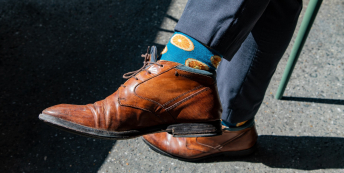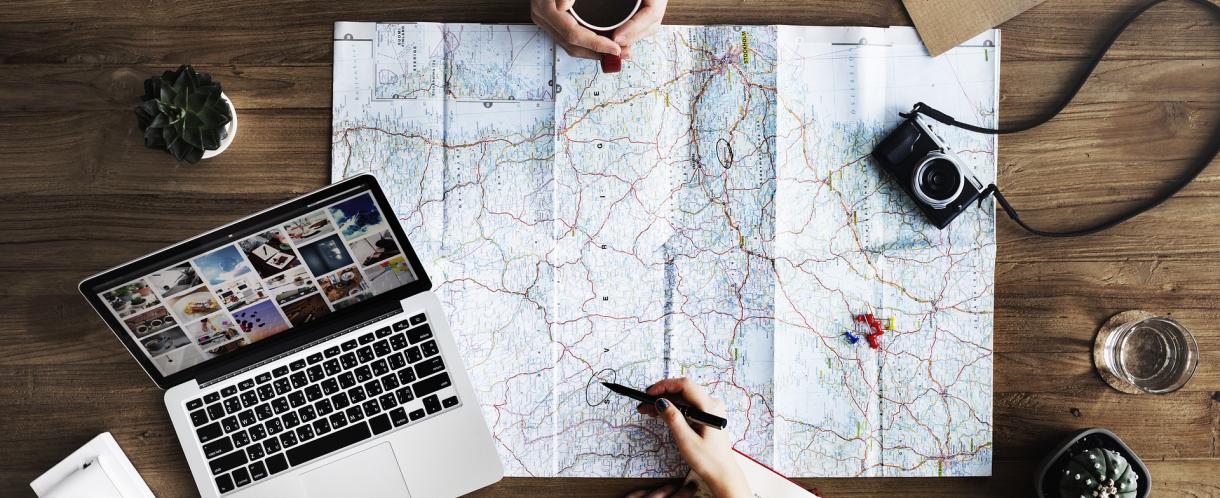
Work online and travel the world… it sounds wonderful – and according to the media, it’s more possible than ever. But what’s the reality behind the glamour? And, if you have responsibilities, how practical is it? Here, Natasha uncovers the highs and lows of being a digital nomad (including stories from people who’ve shifted into the lifestyle), and the most effective strategies to get started.
She's tan, barefoot and beautiful.
She's wearing brightly coloured, baggy cotton trousers, smiling beatifically as she swings in her hammock.
Nestled in her lap, a shiny laptop.
He's sitting by the pool, tapping away at his keyboard.
They're typing. They're laughing. They're drinking smoothies. In the background, there's a rice paddy and a monkey. Or a beach.
It's an image that's becoming increasingly familiar in the media – and a lifestyle that's increasingly being talked about as part of 'the future of work'.
20 years ago, they called it 'telecommuting', or 'remote working'. Ten years ago, Lea Woodward coined the term 'location independence' to describe the lifestyle. Tim Ferriss brought it to a new audience in The 4-Hour Work Week, terming people who had designed their lives around freedom 'The New Rich'.
Then, the terminology shifted from a way of working to an identity: the Digital Nomad.
In an ever-globalising world where flight prices are dropping and technology is developing at a dizzying rate, working online from anywhere in the world has never been so accessible to so many people.
For the desk-bound, the unfulfilled, and the adventurous, it looks like heaven.
But what does it mean to be a digital nomad, really?
What is it all about, and who is it right for?
And, if you want to become one, how do you do it?
What is a Digital Nomad?
'Digital Nomad' is a tricky term to pin down.
At its core, being a digital nomad is having the ability to work using technology, for an extended period of time, and using that ability to travel.
Some nomads have their own businesses, others are freelancers or consultants, and an increasing number are employed, working remotely.
They span a huge range of industries and roles – there are programmers, coaches, translators, bloggers, designers, psychologists, project managers, VAs… but what they all have in common is the ability to use the internet to work from anywhere.
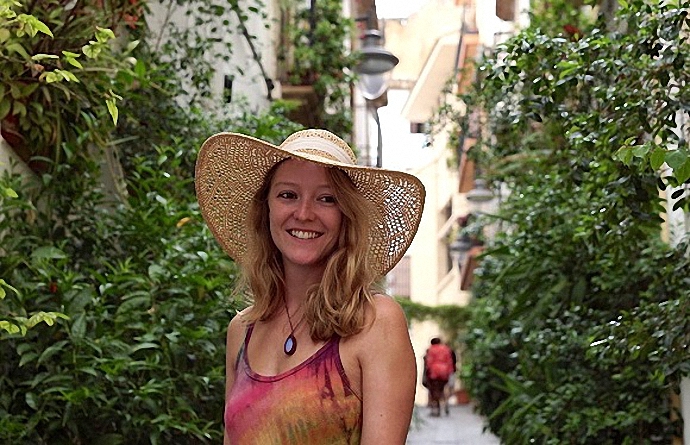
Jennifer Lachs runs Digital Nomad Girls – an online community of women who work online and travel the world. Creating and managing a group like this, she's seen an enormous range of people identifying as digital nomads, and she's constantly surprised and delighted by the diversity of the movement.
"The media talks about digital nomads like we're a group of people who are all doing the same thing, but there's a huge spectrum of what a 'digital nomad' can mean.
"It isn't just a millennial with a single carry-on backpack who changes country every few weeks, although this is what the media likes to portray. That might look glamorous, but it's very exhausting, and it's not the only way to do it.
"You can be in places for a long time, travel much slower. People stay somewhere for three months at a time before moving on – others stay for a year. Some DNs have a home base that they travel from on a few big trips a year, others literally don't have an address. Some are just starting out in their careers, others are in their 40s and 50s. Some have their own businesses, others freelance, and others are remote workers for companies." – Jennifer Lachs, DNG
Are people really doing this?
Despite the media hype about digital nomad life in recent years, there have been very few comprehensive studies on the number of people living this lifestyle.
This is partly due to the inherent transience of workers on the move, and also the fact that many shun the term 'digital nomad' entirely, identifying instead as 'location independent' or 'working remotely'. Others, having lived this way for so long, don't even know that what they do has now been named, much less that people are interested enough to run a study on it.
Online communities for digital nomads are inhabited as much by aspiring nomads as by people actually living the lifestyle, so these numbers are also unreliable.
And choosing who to include in the figures can be tough.
Should they include people who have been on the road for a while, and chosen to take a break and stay in one place for a year? People working remotely in their home country? What about people who are just experimenting with nomad life and haven't yet decided to take the plunge?
However, there are at least a few estimates of how many people are currently working without an office, and where this trend might be headed in the future.
According to The New York Times, a recent Gallup survey of 15,000 adults found that "43% of employed Americans spent at least some time working remotely" in 2016. That's roughly 66 million people who spent a portion of 2016 going remote in the US alone.
And Peter Lievels, a Dutch programmer, designer, author and entrepreneur – and founder of major nomad resources like Nomads.com and Remote OK – has predicted: "There will be one billion digital nomads by 2035".
Even if the term 'digital nomad' is still a surprising phrase to hear for the desk-bound, it's undeniable that remote work is already becoming the norm.
Common misconceptions
With the Instagram-worthy 'glamour' of global travel as a full-time lifestyle, the digital nomad movement has garnered a lot of attention from the media – and yet there are still some key misconceptions about what the lifestyle actually is.
It's just a big extended vacation
Yes, you can choose to travel to beautiful places. Yes, you can see the world.
But you also have to work.
Moving like a backpacker (i.e. every few days) while trying to maintain a reasonable working schedule is just about impossible, and if you're running an online business, you're definitely more likely to be found gazing into your laptop in a cafe or a coworking space than meditating on top of a mountain.
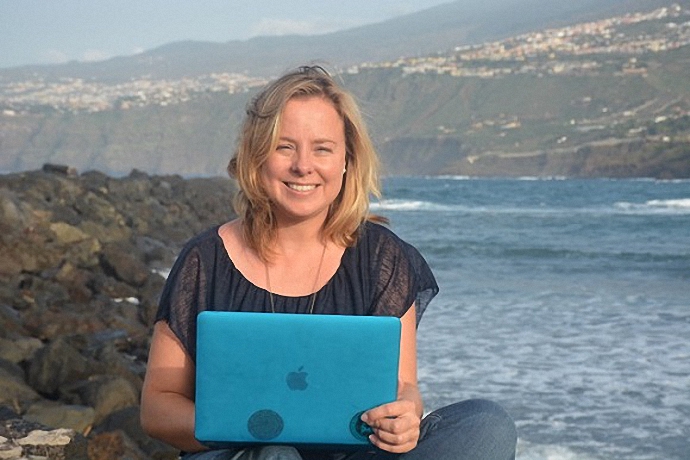
"People have this idea of digital nomads being on the go all the time seeing amazing places. But to actually settle into your routine, meet people, and get work done, I'd say you need to stay in one place for at least a month.
"At the moment, I work Monday to Friday and take weekends off. Having a schedule in place really does help you accomplish your goals.
"I've identified my favourite co-working spaces in the cities where I work, and I know the areas where I like to live. I need that structure." – Andrea De Baat, Business Development Manager and Marketing Consultant
Digital Nomads are all super-rich and don't really have to work
Once you start researching digital nomad life, you'll undoubtedly stumble across a glut of websites and online courses with titles like 'How To Build a 6-figure Business in 3 Months', and 'Generate Passive Income Online And Earn While You Sleep'.
Talk to sceptics of the lifestyle and they'll drop in phrases like 'trust-fund babies' and 'Daddy's little hippy child'.
Truth is, there's no fast-track to earning online, and most digital nomads are working incredibly hard.
There are a lot of people living this lifestyle very comfortably, earning more than they ever did in their careers at home. Leverage your business correctly, and working online can be a highly lucrative career.
But it takes a long time, and a lot of work, to get there.
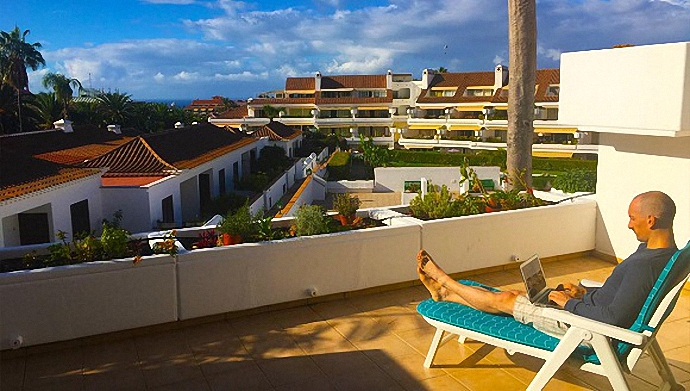
"People have this idealised vision – created by many people like me who are guilty of glorifying it with the perfect photo from that one moment that was fairy tale even though the rest of the day was pretty mundane!
"I would caution that there is a lot of hard work involved. The Instagram moments are few and far between and to achieve those does require a lot of boring time spent sitting in front of your computer for hours on end to build your business." – Niall Doherty, Disrupting the Rabblement
Digital Nomads are all just scraping by
Similar to the above, it's easy to imagine that digital nomads are all budget-bootstrapping their way around the world, backpacker-style.
Some absolutely are – getting started with an online business takes time and effort, and getting a new income source off the ground can be challenging.
But this is the case whether you're starting a new business from the road, or at home from the town you grew up in.
And if you're smart about it, you can even design your businesses to run themselves:

"Even though I'm a business school graduate and have experience working in large and small companies, starting a one-woman digital business was completely new.
"It was extremely scary. I wasn't certain that it was going to work out.
"But now, I'm switching gears. I have systems in place that run my first business, so I just spend a few hours a week monitoring things, and now I can concentrate on my second business a bit more."– Nina Solomatina, Ultramagnifique
Other digital nomads are earning the same – or more – as they were before they began to travel.
With such a big community of people from all walks of life, trying to make a blanket statement about the financial status of digital nomads is impossible.
"It's like saying 'People who get the train to work are all rich / poor.' You earn what you earn the way you earn it. End of story." – Maria, online psychotherapist
It's only for people with no responsibilities
It all sounds lovely to just pack up and go, but what about the mortgage?
Can you really take a three-year-old to live in Bali?
If you have big responsibilities, it's definitely tougher – and scarier – to make a move into digital nomad life. But it's not impossible.
Nomads with mortgages to pay off often use AirBnB to cover their payments – and some even bring in a small income that way from the homes they've left behind. Others, fully committed to the lifestyle, sell their properties and use the capital to invest in their online businesses, or buy another, cheaper property elsewhere in the world to use as a home base and build their bricks-and-mortar investment.
Brenda and Gawin travel the world with their two-year-old daughter and working online.
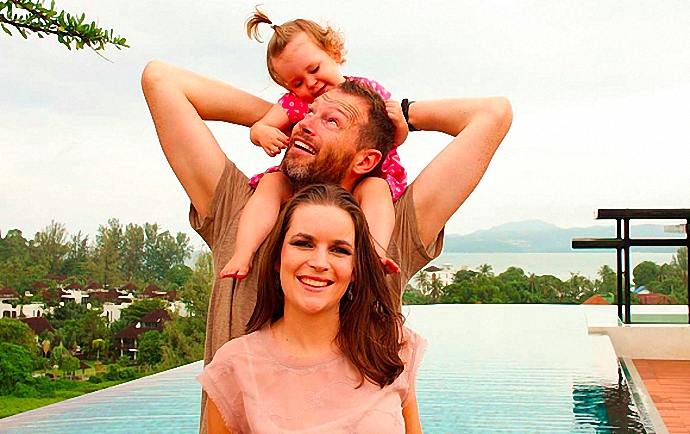
"Our main concerns were the potential impact of an unstable environment for our daughter and finding a stable source of income that would allow us to work from anywhere. But we were surprised by how easily our daughter adapted to our travels. She is very curious which makes it easy for us to connect with others.
"It's not always easy: we have all kinds of technology to stay in touch with the people we love, but there's nothing that can replace a warm hug with friends and family.
"Ultimately though, spending more time together as a family, learning from other cultures and forcing ourselves to get out of our comfort zone really enriched our lives. We've not only learned about the world, but also a lot about ourselves.
"If you're thinking about becoming a digital nomad with children, we suggest you travel slow. Stay in the same place for at least 1–3 months. There are many different ways to educate children, so don't let that hold you back. One last thing: there is always an acceptable excuse – that 'perfect moment' you might be waiting for will never come. If you really want this life for you and your family, test it out in a small way somehow. Start small, but start today." – Brenda and Gawin, Nomad Family
The great bits
See the world
For most people, travel and seeing the world happens on two-week vacations; otherwise it means taking time off work to fit in a 'big trip'.
As a digital nomad, you can experience new cultures, sightsee, and fit adventures in and around your working life.
Most nomads work long hours and are fully committed to their careers – but if they want to spend their weekend climbing a volcano or head out for a traditional local dinner, it's right there on their doorstep.
"Travel has always been a passion of mine, but apart from the odd backpacking trip and holiday from work, I thought I had to wait until I was retired to see the world. But why hang on until you're in your 60s to enjoy this planet we're on? I've travelled to so many of the places I always wanted to go to, I've had such amazing experiences, and I'm only just getting started." – Steve, online tax accountant
Money goes further
If you're starting a business and want to keep costs low, then moving to a country with a low cost of living is a great way to do it. Digital nomads can quickly become masters in the art of budget travel, especially with big names like Chris Guillebeau leading the way.
You don't have to pay for hotels and AirBnB stays to travel (although many digital nomads do, claiming part of their accommodation as business expenses given that they work from 'home').
When I got started as a digital nomad, I used a combination of house-sitting and work exchange programmes to live in the Caribbean, enjoying a lifestyle for 18 months that many people save all year to taste for two weeks.
"You're not paying for a car, or fuel, or (usually) an expensive mobile phone plan. Rent is incredibly cheap, and you can have fun by going to the beach with friends or renting a scooter for £2 a day – you don't end up in a bar in the city spending half your pay cheque on cocktails every weekend." – Zoe, graphic designer, currently in Ubud, Bali.
But be careful not to get stuck in this 'just-starting-out' budget. As Jennifer says:
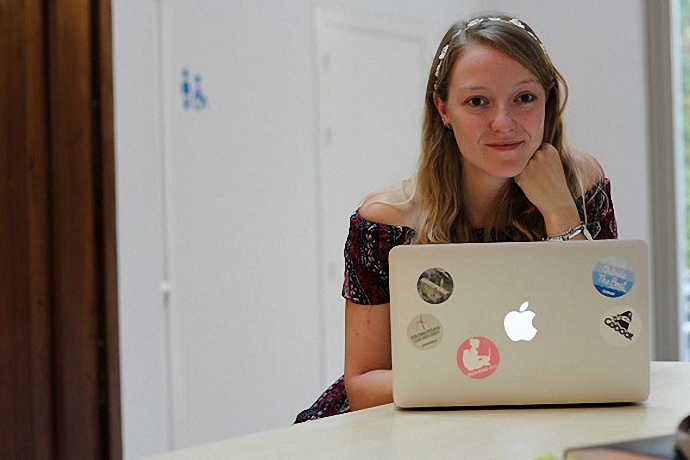
"It's possible to live in Bali on next to nothing, but you have to be careful not to get cornered in that lifestyle – to get used to spending very little and earning only what you need there, and then you really can't move." – Jennifer Lachs, Digital Nomad Girls
A community of like-minded people
Digital Nomads come in all shapes and sizes, but there's undoubtedly something that unites them all.
Having made a move to a fairly unconventional lifestyle – to have considered it and then actually done it – takes a certain mindset and way of approaching life. Nomads are often strong self-starters, bold enough to chase something 'different', and have a key life event – leaving home to hit the road – in common.
When many people from your life at home don't understand what you're doing, or why, having a community of nomads who just 'get it' feels amazing.
"The shift happened when I started to talk to and connect with like-minded people.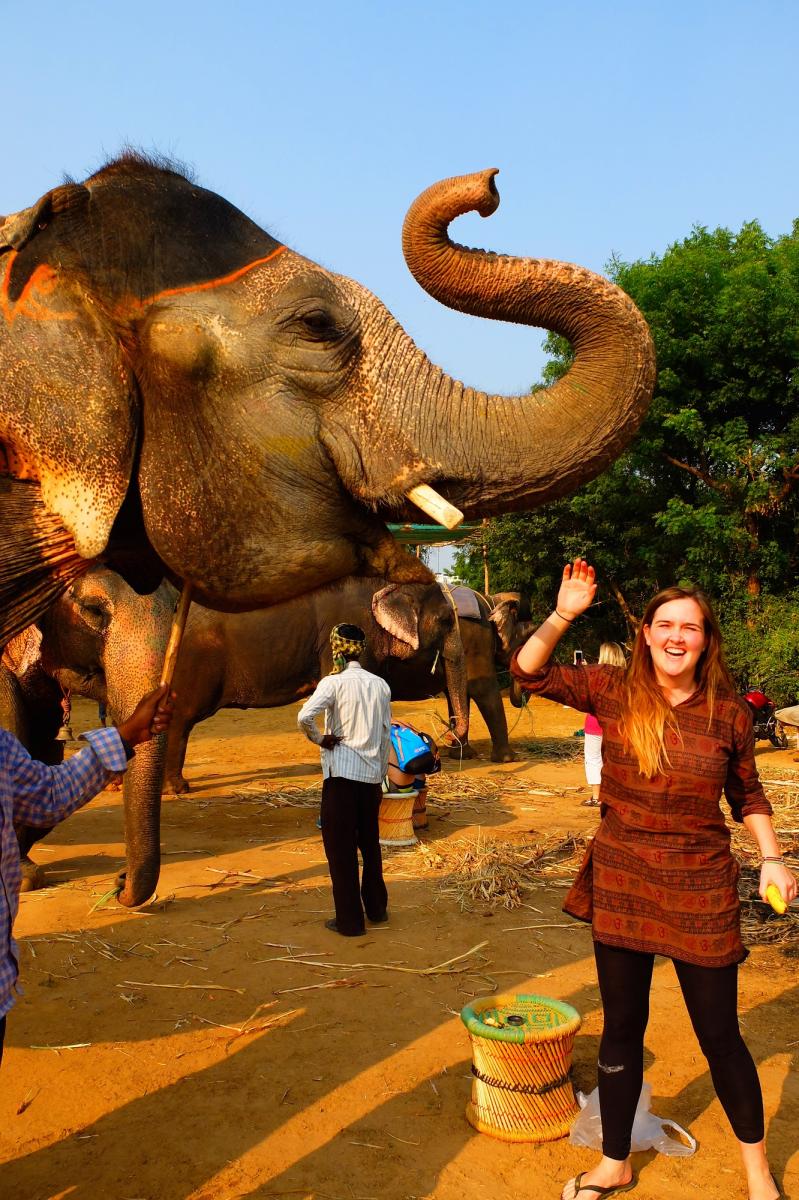
"It was an incredible feeling to find my tribe.
I felt motivated and inspired when I realised that there were so many people not following the traditional career path.
They were doing what they were passionate about, carving their own path." – Anna Moran, SocialStarters
With the rise of co-working spaces all around the world, from tropical Hubud to the cosmopolitan Betahaus in Berlin and Sun-Desk in Morocco, nomads can work and get to know one another easily.
Conferences like Nomad Summit or 7in7 and events like Nomad City are springing up everywhere, and communities like Jennifer's Digital Nomad Girls bring nomads together online, too.
Wherever you need to be, you can be there
Ultimately, the flexibility and freedom of nomad life is what most digital nomads are chasing. As long as there's an internet connection, you can design your movements around whatever works for you, whether it's chasing the summer around the world, or accommodating the life events that matter to you, wherever they happen to be.
"I was in Croatia, and my best friend was getting married in Israel the following month. Two weeks after that, I'd been invited to speak at a conference in Berlin. I went to the wedding, and a few days later I heard that my grandmother had fallen sick at home in Paris. I nipped home to visit her, and went on to the conference afterwards, all without letting down a single client or missing more than a day of work." – Isa, professional travel hacker and blogger
The not-so-great bits
Logistics are tough
Banks and insurance companies often don't know what to do with you. Where are you tax-resident? Where do you receive important documents in the mail?
Although forward-thinking companies like Transferwise are providing services like a Borderless Account, working out exchange rates when you're earning in one currency, paying tax in two currencies, and spending in three others over the course of a year can give you a headache.
Be ready to spend a long time on the phone to very confused customer service agents, explaining that although your 'home address' is a PO Box in Nottingham, you're actually living in Brussels, and in three weeks you'll be somewhere else, although you can't tell them where yet because it depends on whether Norwegian Airlines has an end-of-month sale.
Travel insurance is a great idea, but there are surprisingly few companies who will insure you (or renew your policy) when you're already away from your home country.
Prepare to be up at 3 a.m. for meetings with people in other time zones. And then again at 10 a.m.
And although it might look like the world is your oyster as a digital nomad, your primary driver is always your wifi connection. That secluded tropical village with a beach bar might be beautiful, but ultimately you'll be choosing where you travel based on connectivity, not cocktails.
It can get lonely
In late 2016, I decided to 'retire' from the digital nomad lifestyle and stay in one place (Las Palmas, Gran Canaria) for the foreseeable future.
For a long time, I had been carrying around a sense of deep loneliness – meeting amazing people every few months, and then saying goodbye again. I missed a solid community, having people around me who could take one look at my face and know how I was feeling. I missed having a space I could call my own, instead of living in other people's homes, AirBnBs, co-working accommodations.
And I'm not the only one. This sense of 'floating' is one I hear more and more about from nomads I meet.

Even one of the figureheads of the digital nomad movement, Peter Lievels, stopped travelling and put down some roots after a few years of the lifestyle.
Niall Doherty is doing the same.
"I miss the sense of belonging that you get from being in one place. That's why I recently decided to move to Amsterdam for a year. I'm currently looking to have two bases, a summer one and a winter one so that I can have friends that I see regularly. I'd say to people that it's definitely worth trying. But most people do find that long term it doesn't make them happy. For a couple of years it's brilliant but then you do start to crave stability and routine." – Niall Doherty, Disrupting the Rabblement
And there's a good reason that, despite the freedom and independence that digital nomads chase, co-working spaces (otherwise known as 'offices') and co-living schemes (otherwise known as 'shared apartments') are springing up left, right, and centre.
The beach is not the best place to work from, and flying solo from AirBnb to treehouse is fun, but not for ever.
If you're considering going on the road as a digital nomad, you need to be prepared to 'hold on tightly, and let go lightly'. Make the most of connections you make, but do so in the knowledge that while you may meet again… most likely you won't.
'Starting out' becomes your norm
You know all the admin and stress that goes with moving house, or moving to a new town? Getting your wifi set up, re-routing your phone, finding the supermarket, learning your way around, meeting the local community… Depending on how fast or slow you travel, digital nomad life can feel like that full time.
Joel Gascoigne, CEO of Buffer (a company well-known for being fully remote), wrote an honest account of his experience as a digital nomad here. He says:
"Being in a new place means adjusting to many new things, even as simple as finding grocery shopping. Everything takes a little longer… and that can be a little frustrating if you don't anticipate it.
"As a remote worker who enjoys the coffee shop environment to get things done, I also found that I could often get to a coffee shop which wasn't an ideal setup or where the wifi was not quite fast enough, and so it could take a couple of attempts before I found a great one. That took away yet more time." – Joel Gascoigne, CEO, Buffer
And I met Ben, who works remotely for a well-known project management start-up, in a coworking space in Amsterdam:
"I land in this new, beautiful place, and my first few days are spent locating the strongest wifi connection, the best coffee, catching up on the work I missed while travelling to my latest location, finding the digital nomad hubs, doing the usual 'Where are you from, how long are you here for, what's your business?' conversation about 14 times so I have some people to go to dinner with, and getting lost trying to find my way back to wherever I live. And it seems like as soon as I've got my bearings and I really know or understand where I am, I'm moving on again." – Ben
People from home don't always understand
"But when are you coming home?"
"Are you going to get a job sometime soon?"
"How are you always on vacation?"
"Don't you like us any more?"
Digital nomad life is becoming more widely known, but it's still a pretty niche lifestyle.
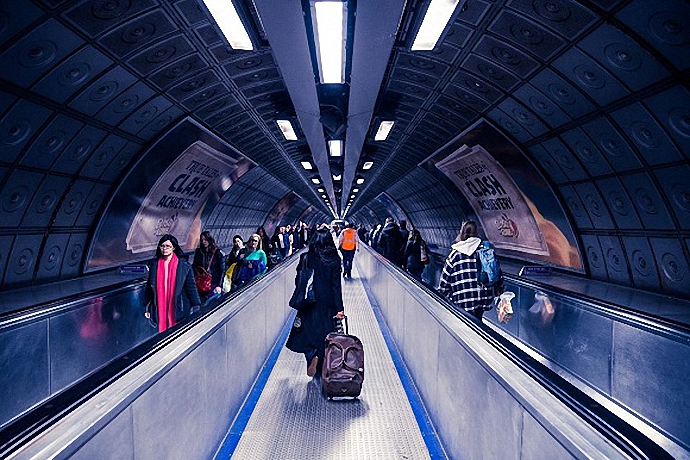
Explaining to your friends and family that you're going to leave everything you know and work online while travelling the world can be a tricky conversation. People of older generations often genuinely don't understand what you're doing, no matter how many times you explain it to them.
And it can take a while for friends to adjust to the idea that what you're doing is a Real Thing; you're not just running away from life, or having a 'final fling' before you give in to the fact that you're an adult.
Many digital nomads find that they grow apart from their friends back home quite quickly, and that can be tough.
"I love my friends from home; we've been a tight unit since university. But their lives have stayed on much the same path, and mine has taken a huge turn in a new direction. I'm already seeing a bit of a strain in our Skype calls, and it makes me incredibly sad." – Becky, freelance writer.
Want to shift to become a digital nomad? Here's how to get started
Most of the nomads I've spoken to laugh when I ask them for their advice on how to get started.
"Don't do it the way I did it!" is often what I hear.
But frankly, there are a huge range of ways to land your first gig. (Here are eight examples right off the bat from the community at remotive.io.)
Start from home
Can you work outside an office environment? Will you get lonely? How's your self-motivation? If you're not sure how well you'll do flying solo, and you want to start small, Jennifer Lachs recommends suggesting working from home to your boss as a starting point.
"Many employers won't have a problem with you asking to test-drive working from home one day a week, or even one day a month. If that goes well, try it for a week, and then review how it went together. If you can show you're just as productive, or even more productive, out of the office, then there's another conversation to have: go to France for a week and see how that goes." – Jennifer Lachs, Digital Nomad Girls
Sceptical?
Diana Vermeij worked in communications for a multinational chemical company in the Netherlands. When her feelings about work became unbearable, a conversation with her boss about needing a change was the catalyst for her digital nomad life. And she didn't expect it to turn out the way it did...
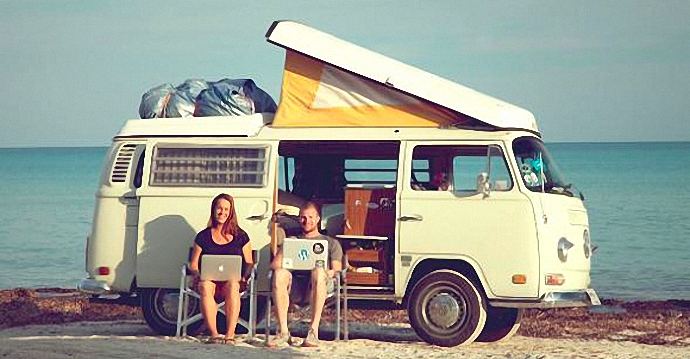
"After a year of feeling unsure, one morning I felt I'd just had enough. I couldn't get myself out of bed anymore to go to work. That was it. I collected all of my courage, went to the office very early in the morning and told my boss [about how I was feeling].
"I expected to be 'let go' immediately. Actually, the opposite happened. I was offered the opportunity to work part-time for six months, to get my business set up and find my first client. I took the offer with both hands and considered it an experiment."– Diana Vermeij
Diana now works remotely with her partner offering lifestyle design and career change coaching, web development, online marketing, and teaching.
Take a test-drive
Niall 'practised' working on the road a few times before he made the leap.
 "I used to work as a web designer for a university in New Orleans.
"I used to work as a web designer for a university in New Orleans.
"I was living my teenage dream, going to basketball games of my favourite team, interviewing players and coaches, but it got to the point where I thought: 'There has to be more to life than writing about ten grown men chasing a ball around.
"It was around that time that I started to coming across bloggers who were travelling the world and working online.
"That really started to appeal to me.
"I hadn't travelled properly before, especially to non-English speaking countries. But I've always liked challenges and growth opportunities. I figured if I really wanted to grow and learn, travelling the world and working for myself would be a great way to do that.
"I handed in my notice six months in advance, and then just started saving like crazy.
"I only had £10,000 in the bank when I quit, but that helped a lot as I didn't earn a lot of money in the first year. I sold almost everything I owned and was happy staying in less-than-fancy places. I was content with the bare minimum in exchange for the freedom that it would give me.
"Just before I quit, my brother got married in Italy, so I flew over.
"Aside from three days with the family, I spent the rest of the time travelling on my own, staying in hostels, getting by without the language skills.
"I gradually did more test runs to prove to myself I could do it." – Niall Doherty
Niall left his last 'real job' seven years ago.
Since then, he's visited 45 countries, alternating periods of intense work helping other people to build their online businesses, and seeking out the adventures that first attracted him to the nomadic lifestyle.
Retrain
Andrea took a little time off from her work as a Marketing and Direct Sales Manager for a wine cooperative to upskill and get ready for nomad life:

"I found a three-month course in Tenerife which would let me get away from my job and learn online marketing at the same time.
"It was really difficult to get the OK from my employers at the time, but in the end they agreed to give me three months of unpaid leave.
"A whole new world opened up to me doing that course, but it still took me eight months to overcome my fears and quit my job.
"During that time, I mentally prepared and did my research – reading blogs, networking and talking to people.
"I started following Facebook groups, making a list of the countries I wanted to go to, and finding where the hubs were for digital nomads. After I quit my job I went on a Nomad Cruise, where I met a lot of people who were already living this lifestyle.
"I ended up in Chiang Mai and started to do odd jobs like translation, writing articles, and things like this.
"I set up by myself and figured that I either had to make it work or find a job again.
"Within my first month I had four freelance clients that gave me sufficient money to sustain myself." – Andrea De Baat
Andrea now works as a business development manager and marketing consultant, and is currently based in Amsterdam.
Take your existing work on the road
If you're in an industry or position that can help other people, it's not an unreasonable idea to shift what you offer online and take it on the road.
Janet is a lawyer who went freelance five years ago. She now runs her own business providing legal advice to start-ups.

"I didn't really want to work for someone else so I went freelance, and the location independence was sort of an accident.
"Then I realised I was free to choose where I work and what my costs were, since I didn't have to live in the most expensive cities.
"Before I went freelance I was in a weird situation where it was costing me more to commute to work, than to work from home.
"I had a couple of months' rent saved up so I just dove into it and managed to make the switch in about three months.
"I was also lucky because I used to have my own law firm which meant I knew I could make money this way – as a lawyer, someone always needs your help!" – Janet, Innovation Provocateur
And Caroline transformed her existing company, The Social Accelerators, into one that could support her remote lifestyle.

"I had a really successful business with five members of staff who were servicing clients in our local area.
"I loved working with local clients but I realised something had to change when I started to feel like I was just employed by corporates again, working from 7 a.m. until 11 p.m., permanently at my laptop, not seeing the world, stressed and tired.
"I need freedom to make decisions that suit my lifestyle. That might sound selfish, but if you're worried and stressed all the time you lose your creativity.
"It took me going all the way to Bali to do a month long course on running a digital business to realise that there was a bigger world out there – and a larger business base for me to tap into.
"We've always been a digital business so we just took the rest of our processes online, and I set up other systems that meant I could run my business while I was away." – Caroline, The Social Accelerators
Caroline is currently based in Gran Canaria, with clients in Australia, Indonesia, Bali, Gran Canaria and the UK.
Top resources for the aspiring nomad:
Search 'Digital Nomad Resources' or 'How to get started as a Digital Nomad' online and prepare to spend the next three weeks reading 20,000 guides, approximately a quarter of which are out of date, a third are listicles that say the same thing in different ways, and half of which are written by travel bloggers making money from affiliate links.
To save you time and brainpower, we've chosen a few of the best resources from the most important categories – just to get the ball rolling.
Cover-everything guides:
NomadStack: a broad range of resources arranged by topic – from finances and flights to luggage and love on the road.
Mish and Rob run Making It Anywhere – a blog, book and website based on five years of nomad life.
Kit Whelan and Viv Egan's podcast Nomad + Spice is an honest, warts-and-all examination of being a digital nomad. It's primarily aimed at women, but is worth a listen for anyone interested in straight-talking discussion of the lifestyle.
Communities
The Digital Nomad subreddit is a no-nonsense space for honest discussion of just about everything nomad related.
For a soft landing into the lifestyle, you might want to try a programme like Remote Year or Hacker Paradise, where you travel as part of a group on a pre-arranged itinerary.
VisaGuide provide a information on digital nomad visas, including general requirements, the standard application process, and FAQs.
I want to be a…. Freelancer
Jobsites: Upwork and Fiverr, PeoplePerHour and Guru are probably the best-known and most-active freelancing job boards available.
(Note: Nomad freelancers tend to have mixed feelings about these sites – while some find all their work through profiles on freelancer sites, others feel that the work you have to do to be noticed in a saturated space takes more effort than it's worth.)
Hello Bonsai put together a list of the best tools you'll need as a freelancer on the road.
I want to be an.... Entrepreneur
Suitcase Entrepreneur's Natalie Sisson is on a mission to help 1,000,000+ entrepreneurs create true freedom in life by 2020.
I want to be a…. Remote worker
Remote.co hosted a Q&A with some of the companies best-known for a remote workforce, including Automattic.
WeWorkRemotely and NoDesk list job opportunities which aren't restricted by location.
Managing finances on the road
In late 2016, Currency Fair ran an honest and well-researched piece on how to manage your finances as a digital nomad.
To work out your Minimum Viable Income and mitigate financial risk as you get started on the road, this piece by ZenBusiness provides a step-by-step rundown. Although it's designed for aspiring entrepreneurs, it can be adapted to suit any financial goal.
Is being a digital nomad right for you?
Living and working on the road is a beautiful idea – and as more and more companies are embracing the idea of remote work, it's more accessible to more people than it's ever been.
But it can still feel like a major change, and as we've seen from our case studies, the lifestyle can be tough.
If you're self-motivated, reasonably comfortable with risk, and hungry to explore the world before you retire, this is a beautiful way to do it.
Just make sure you don't try to do it alone. The one thing every nomad will tell you is that working on the road can be lonely, and you will come up against problems and challenges you'd never encounter in the 'normal' world. The more of a community you can build around you, the more connected you'll feel (and the faster you'll find your way through the tricky spots that will get in your way).
And remember: there's no one way to be a digital nomad. This is a complex, varied and ever-growing community of people learning to build careers largely on their terms.
You don't have to cut all ties and commit yourself to the Instagram, one-size-fits all image.
Do it your way.
What questions do you have about being a digital nomad? Let me know in the comments below.


